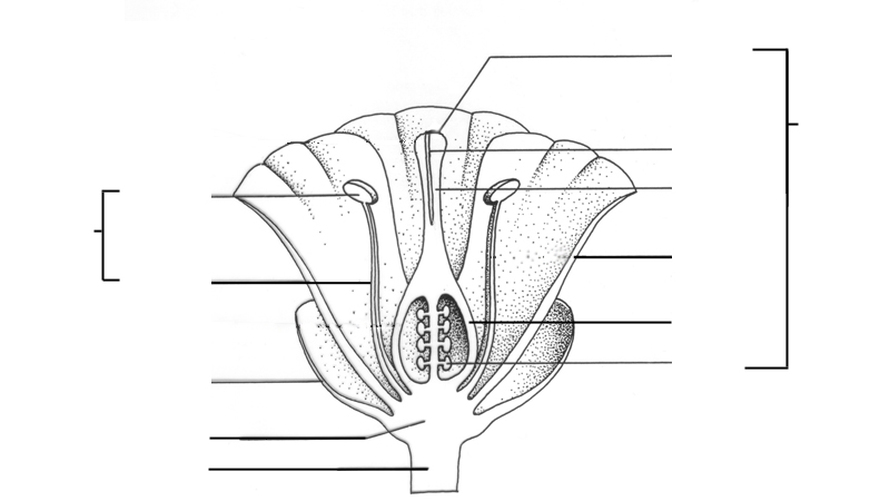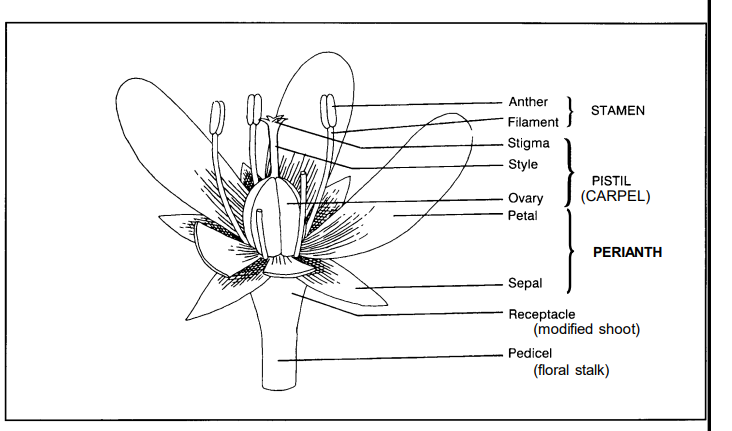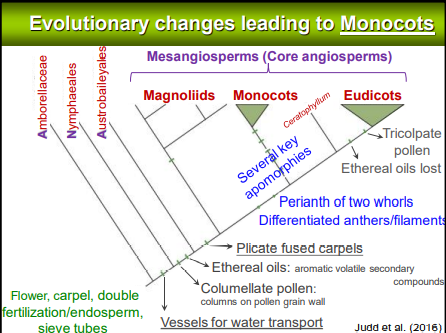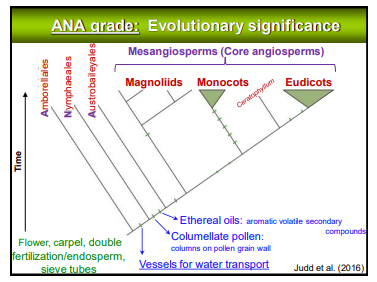DOL EXAM 3
5.0(1)
Card Sorting
1/89
Earn XP
Description and Tags
angiosperms seedless vasular plants gymnosperms woody angiosperms
Last updated 10:00 PM on 12/12/22
Name | Mastery | Learn | Test | Matching | Spaced | Call with Kai |
|---|
No analytics yet
Send a link to your students to track their progress
90 Terms
1
New cards
Which phylum helps us better understand the seed plants
Monilophyta
2
New cards
What are three traits of angiosperms
dry, compact mesophyll
3
New cards
what is the difference between lycopodia and monilophyta
micro vs megasporophyll
4
New cards
Do seedles vascular plants still need water to reproduce
yes the still have spores and not seeds and think of the carboniferous period
5
New cards
What led to the dominance of seed plantss
sead coat pollen spreading, the Pangea and loss of habitat, they coud stand descication and make better fit for the changing world
6
New cards
Monilophyta originated?
390 mya
7
New cards
Monilophyta have heterosporous aquatic fungi?
T
8
New cards
Three uses of lycophytes
1. Floral Industry
2. Medicinal and homeopathic remedies - pain relief, support of memory retention
3. Photography and pyro-techniques/special effects (spores = lycopodium powder)
4. Coal deposits - source of energy for generation of electricity worldwide
5. Model system to understand evolution of vascular plants (Selaginella moellendorffii genome sequence) (resurrection fern drought tolerant model)
2. Medicinal and homeopathic remedies - pain relief, support of memory retention
3. Photography and pyro-techniques/special effects (spores = lycopodium powder)
4. Coal deposits - source of energy for generation of electricity worldwide
5. Model system to understand evolution of vascular plants (Selaginella moellendorffii genome sequence) (resurrection fern drought tolerant model)
9
New cards
Lycopodia have motile aquatic sperm
T
10
New cards
whats the oldest lineage of extant vascular plants
Lycopodiophyta
11
New cards
Name the three extant lineages of Lycopodiophyta
Lycopodiales, Selaginellales, isoetales
12
New cards
Which fern is being researched at esf
Hart's tongue fern, fragrant cliff fern
13
New cards
What are the four extant lineages of monilophyta
Equisetidae (unbranched stems, strobilus) Ophioglossidae (no roots adaxial synangia, Marattiopsida, (large fromds, abaxial synangia)
Polypodiidae 95% (some heterospory sori, megaphyll, leptosporangia )
Polypodiidae 95% (some heterospory sori, megaphyll, leptosporangia )
14
New cards
Monilophyta are a Euphyllophytes
T
15
New cards
When did seed plants originate
the cold and dry end of the caboniferous perios
286 mya wwhen permian pangea happened
3rd mass extinction
286 mya wwhen permian pangea happened
3rd mass extinction
16
New cards
Four gymnosperms
Cycadophyta
ginkophyta
coniferophyta
gnetophyta
ginkophyta
coniferophyta
gnetophyta
17
New cards
most basal lineage of seed plants,, fronds clustered at top
cycadophyta 11 genera 300 spp. dioecious
18
New cards
Ginkophyta
7 genera 50 spp. catkin like reproductive structures
2500 years of life
2500 years of life
19
New cards
Gnetophyta
two integuments
3 families 1 genus each
ephedra
welwitschia
gnetum
3 families 1 genus each
ephedra
welwitschia
gnetum
20
New cards
coniferophyta
most ecologically and economic gymnosperm
initial diversification in triassic
initial diversification in triassic
21
New cards
WHY are seeds important
- Formed from the ovule which is composed of sporangium and integument
- Integument provides protection for sporangium and associated events
- Matured ovule contains seed coat (protection), embryo (young sporophyte) and cotyledon (food source)
- The seed can survive in dry conditions while the spore is critically dependent on water
- Integument provides protection for sporangium and associated events
- Matured ovule contains seed coat (protection), embryo (young sporophyte) and cotyledon (food source)
- The seed can survive in dry conditions while the spore is critically dependent on water
22
New cards
Whats the largest spruce
Sitka spruce
23
New cards
Whats the conifer genera most native to NY
Pinus
24
New cards
How many genera of conifers are native to NY and how many exist total
15 native to NY 53-67 total in the world
25
New cards
tree used to mae stradivarius violins
Picea Abies
26
New cards
Most widely distributed in Europe
Pinus sylvestris
27
New cards
Rarest conifer in NA
Port orford cedar, serpentine soils high metal and alkaline
28
New cards
rarest tree in world
Monteray pine
29
New cards
Largest pine and biggest cones
sweet sap pine
30
New cards
Nine naturalized genera of conifers
Abies(balsamea)
Larix (laricina)
Picea (abies, glauca, mariana, rubens)
Pinus (banksiana, resinosa, rigida, strobus, sylvestris, virginiana)
Tsuga (canadensis)
Cupressaceae
Chamaecyparis (thyoides)
Juniperus (communis, horizontalis, virginiana)
Thuja (occidentalis)
Taxaceae
Taxus (canadensis)
Larix (laricina)
Picea (abies, glauca, mariana, rubens)
Pinus (banksiana, resinosa, rigida, strobus, sylvestris, virginiana)
Tsuga (canadensis)
Cupressaceae
Chamaecyparis (thyoides)
Juniperus (communis, horizontalis, virginiana)
Thuja (occidentalis)
Taxaceae
Taxus (canadensis)
31
New cards
Smallest angiosperm
tallest angiosperms
largest inflorescence
widest stem plant
tallest angiosperms
largest inflorescence
widest stem plant
wolfoglia
eucalyptus
bayobab
eucalyptus
bayobab
32
New cards
How many species of angiosperms are there
250,000
33
New cards
Which fllower only blooms once evry so often and lets off heat bc of it, convection
titan arum
34
New cards
Oldest living angiosperm
creosote bush, quaking aspen
35
New cards
Nitrogen fixing
red clover, acacia, red alder
36
New cards
all major crops are angiosperms
T
37
New cards
name two characteristics unique to angiosperms
carpels, flowers, sieve tube memebers, endosprem
38
New cards

Name all the parts of a flower bitch
hi

39
New cards
How did carpels form
Like a lil leaf folding in the megasporangio like a lil irish dance blanket so many of them formed through the folding and folding and foldin so now theres three carpels and one pistil
40
New cards
Pericarp
the wall of a ripened ovary, consisting of ecocarp mesocarp and endocarp
41
New cards
sylema dn phloem water cells comparesd to conifers
they have so many more perferations and lots more puts the have perferation plates and vessel elements that water passed fater through via perferations rather tahn trachieds, they also have sieve tube members rather than just cells, they have more pores in general
42
New cards
Leaf size trends across evolutionary history
they got more veiny and more stomata for transporting and holding water.
43
New cards
the most archaic extant angiosperm
Amborellaceae
Amborella - the most archaic extant angiosperm
- The only species in Amborellaceae
- Very restricted range - New Caldeonia montane forest
- No economic important, but great evolutionary significance
- Carpels with unfused stigmatic ridges (closed by secretion)
- A woody angiosperm without vessels
- Stamens undifferentiated into anthers and filaments
Amborella - the most archaic extant angiosperm
- The only species in Amborellaceae
- Very restricted range - New Caldeonia montane forest
- No economic important, but great evolutionary significance
- Carpels with unfused stigmatic ridges (closed by secretion)
- A woody angiosperm without vessels
- Stamens undifferentiated into anthers and filaments
44
New cards
look at this bitch
hi

45
New cards
WHat does ANA stand for
Amborellales
nymphaceales
ausrrobaileyales
nymphaceales
ausrrobaileyales
46
New cards
Nymphaeales
water lily family
aquatic
vessels for water transplant
globally distributed
many tepals
aquatic
vessels for water transplant
globally distributed
many tepals
47
New cards
Evolutionary signifigance of magnoliids
vessels for water transport
columellate pollen (collumns on pollen grain wall)
ethereal oil
Plicate fused carpels
columellate pollen (collumns on pollen grain wall)
ethereal oil
Plicate fused carpels

48
New cards
Evolutionary chnages leading to eudictos
ethereal oil lost
tricolpate pollen
tricolpate pollen
49
New cards
Basal Eudicots- Ranunculaceae
Buttercup family
sometimes no petals
carpels many and distinct
fruit often follicle
smalll delicate flowers bright colors
MARSH MARIGOLD
GLOBEFLOWER
WHITE BANEBERRY
COLUMBINE
sometimes no petals
carpels many and distinct
fruit often follicle
smalll delicate flowers bright colors
MARSH MARIGOLD
GLOBEFLOWER
WHITE BANEBERRY
COLUMBINE
50
New cards
Core Eudicots Crassulaceae
differentiated petals and sepals, 4-5 of each
free carpels
CAM
free carpels
CAM
51
New cards
CAM
crassulacean acid metabolism
stomates open at night for CO2 uptakeand carbon fixation
Photoynthetic light reactions with closed stomated during the day to limit water loss
stomates open at night for CO2 uptakeand carbon fixation
Photoynthetic light reactions with closed stomated during the day to limit water loss
52
New cards
Cactaceae
succulent stems
CAM metabolism
spines instead of leaves
CAM metabolism
spines instead of leaves
53
New cards
Fabaceae
legume family
3rd largest angiosperm faimily
18,000 spp.
2nd largest in economic importance
peanuts, soybeans, lentils, peas, beans, alfalfa, tamarind
3rd largest angiosperm faimily
18,000 spp.
2nd largest in economic importance
peanuts, soybeans, lentils, peas, beans, alfalfa, tamarind
54
New cards
Rosaceae
perianth 5 merous
stamens numnerous
roses, good smelling things
stamens numnerous
roses, good smelling things
55
New cards
Asteraceae
23,000 spp. most diverse and most spp of all plant families
artichoke, sunflower, lettuce
artichoke, sunflower, lettuce
56
New cards
Orchidaceae
monocots
19500 spp. number 2
19500 spp. number 2
57
New cards
Poaceae
monocots
50% of humans calories
grasses
number 1 family in economic importance
70% of farmland
4 most important food crops, wheat rice corn and sugarcane
24% of earths vegetation
number 4 in species richness
50% of humans calories
grasses
number 1 family in economic importance
70% of farmland
4 most important food crops, wheat rice corn and sugarcane
24% of earths vegetation
number 4 in species richness
58
New cards
BLueberries family
Vaccinium
59
New cards
Sapindales citrus
oranges, grapefruit, lemon, lime
60
New cards
Family for apples, cherries, pears, almonds, peaches, hydrangea
Rosales
61
New cards
Fabales
legume trees and orchids
62
New cards
Santalales
most parasitic family
63
New cards
Fagales
alll the nuts oaks, chestnuts, beech hazelnuts
64
New cards
Uritcales
figs, white mulberry, elm trees
65
New cards
Laurales
Cinnamon, bay laurel, avocado, sassafras
66
New cards
Magnolialesmost primittive angiosperms
magnolias
nutmeg
the whole jazz
nutmeg
the whole jazz
67
New cards
Boreal New York
Paper Birch, balsam polar, quaking aspen, mountain ash
68
New cards
Alpine one of the rarest in NYS
crowberry, lapland rosebay, bearbery willow, billlberry,
69
New cards
Old fields
prunus cherry pin, cockspur hawthorn, choke cherry, smooth sumac,
70
New cards
Mesic mixed hardwoods
all the hardwood ones idk os many, sugar maple, yellow birch, bitternut hickory, beech, white ash, black walnut, yellow poplar, honeysuckle, raspberry, poison ivy.
71
New cards
dry mixed hardwoods
black maple, sweet birch, pignut hickory, shagbark hickory, american chestnut, hackberry, vornus lforids, white oak, bur oak, most of the oaks, sassafras, devils walking stick,
72
New cards
hardwood swamps 6% wetland NYS
red maple, shallbark hickory, black gum, quercus bicoloor, quercus paulustris, spice bush, rhododendron, poinson sumac,
73
New cards
Flood plain communities
box elder, populus deltoides, silver maple, river birch, sweet gum, salix nigra, salix species
74
New cards
wet meadows
buttonbush, spiraea tomentosa, meadowsweet, black elderberry, red twig dogwood, silky dogwood,
75
New cards
Eastern lake ontario dunes 17 miles
sand cherry, heartleaf willow
76
New cards
pine barrens
gray birch, scrub oak, bearberry, mountain laurel, lowbbush blueberry.
77
New cards
Alvar, rocky limestone
roundleaf dogwood, fragrant sumac.
78
New cards
bogs
bog laurel, bog rosemary, leather leaf, highbush blueberry, cranberries, mistletoe, holly.
79
New cards
fen
bog birch!, swamp fly honeysuckle, hoary willlow,
80
New cards
Restriced to downstate, long island especially
quercus phellos, quercus stellata, atlantic white cedar, sweetbay magnolia, red chockeberry, illex opaca, swamp azalea
81
New cards
lycopodiophyta
dominant group \~ 360 mya = Carboniferous Period
82
New cards
Lycopodiophyta
characterized by dominant and complex sporophyte generation
83
New cards
Lycophytes roots form?
split from the apex
84
New cards
eulophytes/monilophytes roots form?
subapically
85
New cards
What do vascular tissues do? aid in doing?
Allow for tall height
provides competitive advantage
xylem and phloem allow for transport of water and food
provides competitive advantage
xylem and phloem allow for transport of water and food
86
New cards
How many veinns does a microphyll have? Megaphyll
micro 1 mega 2
87
New cards
Name a xerophytic plant
cycad, cactus, dry dessicate things
88
New cards
most and least diverse gymnosperm phyla
most - coniferphyta
least - gnetophyta
least - gnetophyta
89
New cards
black spruce
might be the slowest growing tree
90
New cards
Pterophyta extant lineages
Polyamorus marragies only work gossipwise if there are horses with unbranced stems.